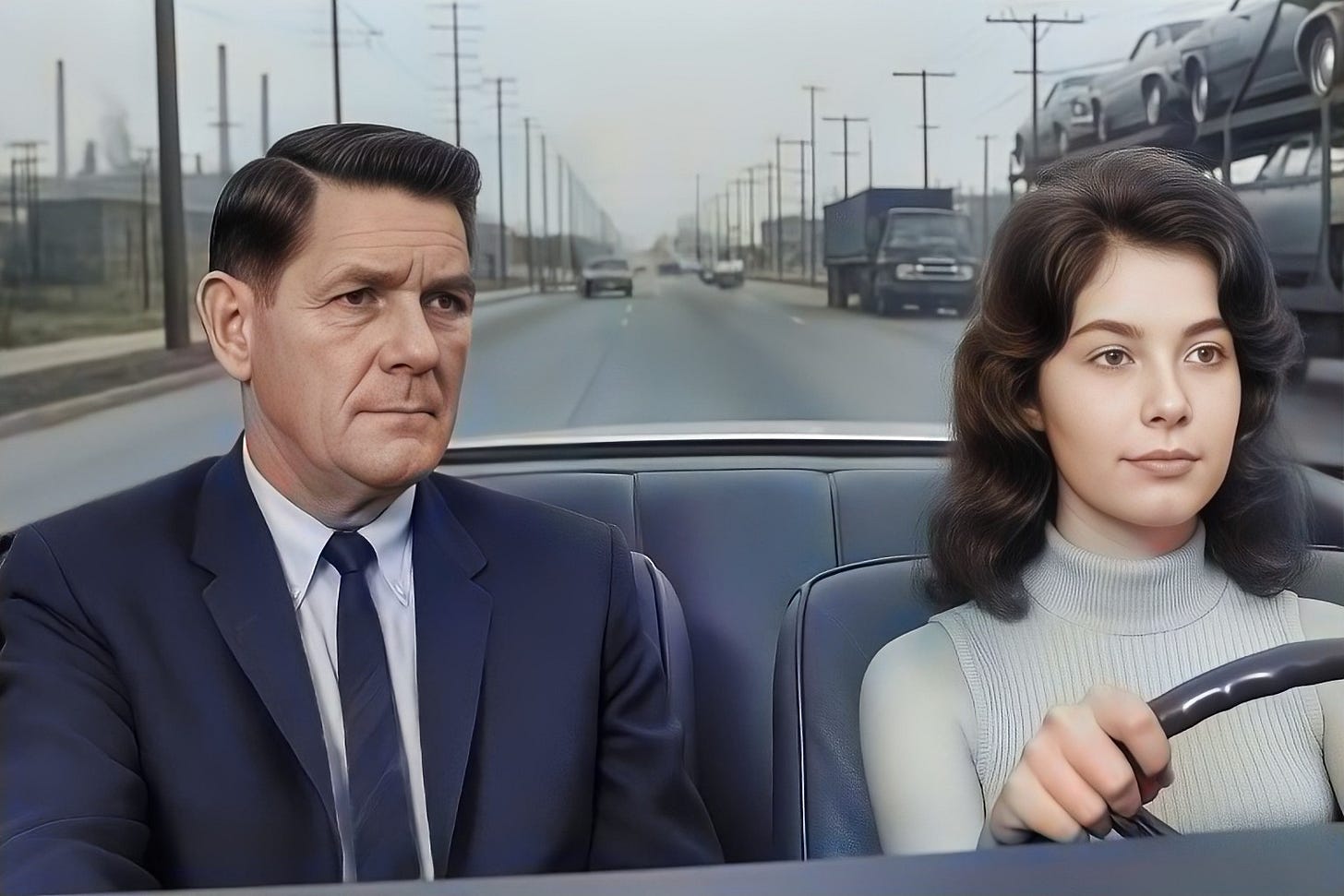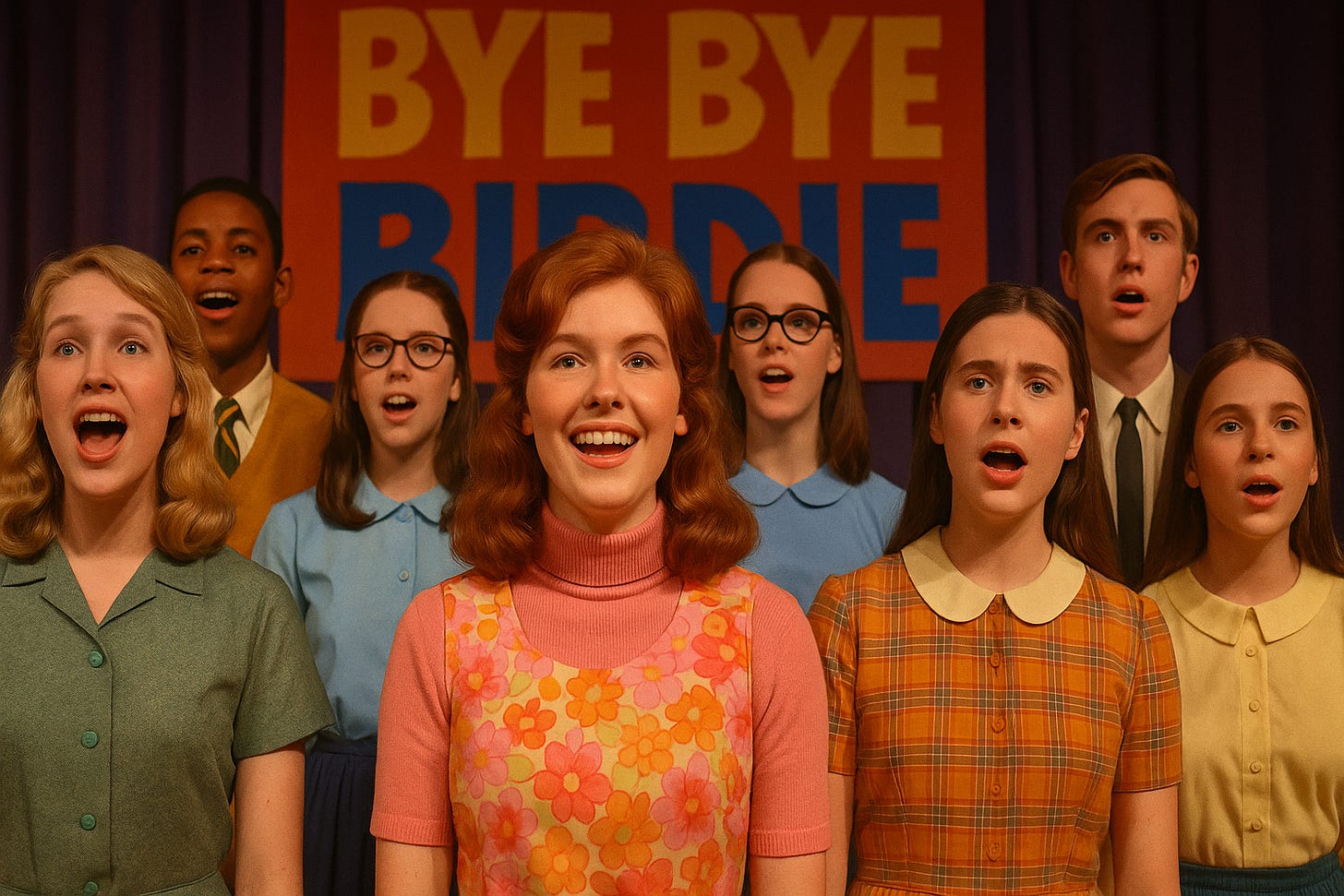Learning How to Drive in Motown
A teenager’s trials behind the wheel in Detroit’s steel jungle
When you grow up in Detroit, you learn early that cars are more than just transportation. They are part of the family. They roll into your life shiny and new, every year like clockwork, because your father happens to be the Midwestern Sales Manager for Chrysler. It sounds glamorous, and in some ways it was. Both of my parents had new wheels every year, the way some families might rotate new coats or appliances. But for me, the glitter of Motown’s car culture dulled quickly the moment I had to learn how to drive one.
It took me three tries to finally pass the driving test. That number is burned into my memory like a red warning light on the dashboard. After failing twice, I was terrified to ask my father for more practice. On our first outing together, I watched his knuckles tighten and his hand instinctively fly to the dashboard with every turn I made. His body language told me he would rather be anywhere else, maybe even on foot, rather than at my side while I jerked my way through traffic. After that, I did not ask again. My practice hours were limited, and my nerves were shot.
Detroit was not an easy place for a teenager to learn. The roads were crowded with giant American cars, car-transport carriers stacked with gleaming new models, and big rigs roaring between lanes. Each drive felt like venturing into a steel jungle, where every vehicle seemed overwhelmingly huge.
By the time I finally earned my license in my junior year of high school, it felt like liberation. No more waiting for a ride. No more curfews that hinged on parental goodwill. I was free. Or so I thought.
One winter afternoon, after rehearsal for Bye Bye Birdie (I was in the chorus, dutifully singing my heart out), I slid behind the wheel with a couple of friends in tow. Snow had dusted the roads, the kind of snow that tricks you with its beauty before it turns treacherous. As I eased out of the school parking lot, my brakes betrayed me. The car skidded helplessly on the ice and slammed into the side of a passing vehicle.
Time stopped. My stomach dropped. In that instant, I imagined the fury on my father’s face. He trusted me with the family’s Chrysler Town & Country station wagon, and I had promptly crumpled it.
But when I confessed, expecting thunder and lightning, he surprised me. He was relieved that I was unhurt. He did not scold. He did not sigh. He simply traded the car in for another new one, because that was the perk of his job. I had wrecked a Chrysler, and instead of punishment, I was handed a lesson: cars are replaceable, but daughters are not.
Outro
Looking back, I realize how much Detroit itself was a teacher. It gave me trial by fire, or in my case, trial by ice, on the roads. It pushed me past fear, reminded me that mistakes do not have to define you, and showed me how grace sometimes arrives in the form of a father’s steady acceptance. If Motown taught me how to drive, it also taught me how to survive. And that, in its own way, has carried me farther than any car ever could.



